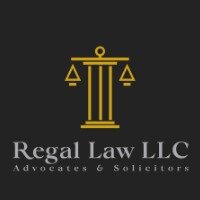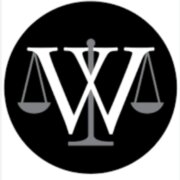Best Corporate Governance Lawyers in City Hall
Share your needs with us, get contacted by law firms.
Free. Takes 2 min.
List of the best lawyers in City Hall, Singapore
About Corporate Governance Law in City Hall, Singapore
Corporate Governance refers to the system of rules, practices, and processes by which companies are directed and controlled. In City Hall, Singapore, corporate governance standards are among the highest in Asia, designed to strengthen accountability, fairness, and transparency within companies. These laws and guidelines apply not only to large listed entities but also to private companies, non-profits, and government-linked corporations in the City Hall area. The goal is to promote investor confidence, protect stakeholders, and ensure ethical behavior across business sectors.
Why You May Need a Lawyer
There are numerous scenarios in which legal assistance may be necessary for Corporate Governance matters in City Hall, Singapore:
- Setting up a new business and structuring the board of directors
- Ensuring compliance with the Companies Act and Singapore Exchange (SGX) requirements
- Drafting or reviewing company constitutions, shareholder agreements, and board policies
- Handling disputes among directors, shareholders, or stakeholders
- Investigating breaches of fiduciary duties or allegations of misconduct
- Managing regulatory investigations by the Accounting and Corporate Regulatory Authority (ACRA) or Monetary Authority of Singapore (MAS)
- Building frameworks for ethical decision making and risk management
- Advising on mergers, acquisitions, or restructuring with corporate governance considerations
Lawyers can provide guidance tailored to your specific situation, mitigate risk, and represent your interests in any legal proceedings.
Local Laws Overview
Corporate Governance in City Hall, Singapore is governed by several key laws and regulatory guidelines:
- The Companies Act (Cap. 50): Sets out the legal framework for company incorporation, director responsibilities, board structure, and shareholder rights. Updates are periodically made to align with international best practices.
- Singapore Code of Corporate Governance: Issued by the Monetary Authority of Singapore (MAS), this Code details leading corporate governance principles and practices for listed companies, such as board independence, executive remuneration, and risk management.
- SGX Listing Rules: Applicable to companies listed on the Singapore Exchange, these rules provide additional requirements for disclosure, transparency, and timely reporting of material events.
- Guidelines from ACRA: As the national regulator of business entities, ACRA provides detailed guidance on compliance, filing requirements, and proper conduct for directors and officers.
- Sector Specific Regulations: Certain industries, including financial services, may be subject to additional governance requirements mandated by the MAS or other regulatory bodies.
Compliance with these laws is critical to avoid penalties, protect reputations, and maintain business continuity.
Frequently Asked Questions
What is the role of a director under Singapore's Corporate Governance laws?
Directors are responsible for managing the company's affairs and owe duties of care, skill, and good faith to the company. They are expected to act honestly, avoid conflicts of interest, and prioritize the company’s best interests at all times.
Are Corporate Governance rules different for private and public companies?
Yes, listed or public companies are subject to stricter corporate governance rules, including mandatory disclosures and independence requirements for directors. However, private companies are also required to comply with core governance principles under the Companies Act.
How often must board meetings be held?
The Companies Act does not specify a fixed number of board meetings, but regular meetings are expected to ensure effective oversight. The company's constitution or shareholder agreements may set additional requirements.
Can a foreigner serve as a director or shareholder?
Yes, foreigners can generally serve as directors or shareholders, but at least one director must be ordinarily resident in Singapore.
What are the consequences of breaching fiduciary duties?
Breach of fiduciary duties can lead to removal from office, personal liability for damages, criminal prosecution, or disqualification from serving as a director.
Is it compulsory to form specific board committees?
For SGX-listed companies, certain committees such as audit, remuneration, and nominating committees are mandatory under the Singapore Code of Corporate Governance. Private entities may form similar committees as a best practice.
How can shareholders influence corporate governance?
Shareholders can vote at general meetings, appoint or remove directors, and propose resolutions. They may also raise concerns about governance practices through formal channels.
What records must be maintained for compliance?
Key records include minutes of meetings, resolutions, registers of members and directors, financial statements, and annual returns. These must be properly archived and accessible for regulatory inspection.
What is the role of ACRA in Corporate Governance?
ACRA oversees the registration, regulation, and enforcement of company law and governance standards, including investigation of non-compliance and sanctioning breaches.
When should a company review its corporate governance policies?
Corporate governance policies should be reviewed regularly, especially after major corporate changes, legislative updates, or organizational restructuring to ensure ongoing compliance and effectiveness.
Additional Resources
Individuals seeking legal advice on Corporate Governance in City Hall, Singapore may find the following resources useful:
- Accounting and Corporate Regulatory Authority (ACRA) - for company registration and compliance guidelines
- Monetary Authority of Singapore (MAS) - for the Code of Corporate Governance and financial sector regulations
- Singapore Exchange (SGX) - for listing rules and corporate disclosure requirements
- Law Society of Singapore - to locate qualified corporate lawyers
- Singapore Mediation Centre - for alternative dispute resolution in corporate matters
- Official government websites for up-to-date corporate regulatory updates and guides
Next Steps
If you require legal assistance related to Corporate Governance in City Hall, Singapore, consider taking the following steps:
- Identify your specific issues or questions relating to corporate governance.
- Gather all relevant documents, such as your company's constitution, board minutes, or compliance records.
- Seek a qualified corporate lawyer accredited in Singapore who has experience in this field.
- Schedule a consultation to discuss your needs, risks, and options for resolution or compliance.
- Implement professional recommendations and arrange for ongoing legal support if needed to ensure that your corporate governance framework remains robust, compliant, and aligned with business objectives.
Taking prompt action can protect your business, maintain trust with stakeholders, and ensure continued success in Singapore’s competitive business landscape.
Lawzana helps you find the best lawyers and law firms in City Hall through a curated and pre-screened list of qualified legal professionals. Our platform offers rankings and detailed profiles of attorneys and law firms, allowing you to compare based on practice areas, including Corporate Governance, experience, and client feedback.
Each profile includes a description of the firm's areas of practice, client reviews, team members and partners, year of establishment, spoken languages, office locations, contact information, social media presence, and any published articles or resources. Most firms on our platform speak English and are experienced in both local and international legal matters.
Get a quote from top-rated law firms in City Hall, Singapore — quickly, securely, and without unnecessary hassle.
Disclaimer:
The information provided on this page is for general informational purposes only and does not constitute legal advice. While we strive to ensure the accuracy and relevance of the content, legal information may change over time, and interpretations of the law can vary. You should always consult with a qualified legal professional for advice specific to your situation.
We disclaim all liability for actions taken or not taken based on the content of this page. If you believe any information is incorrect or outdated, please contact us, and we will review and update it where appropriate.
















